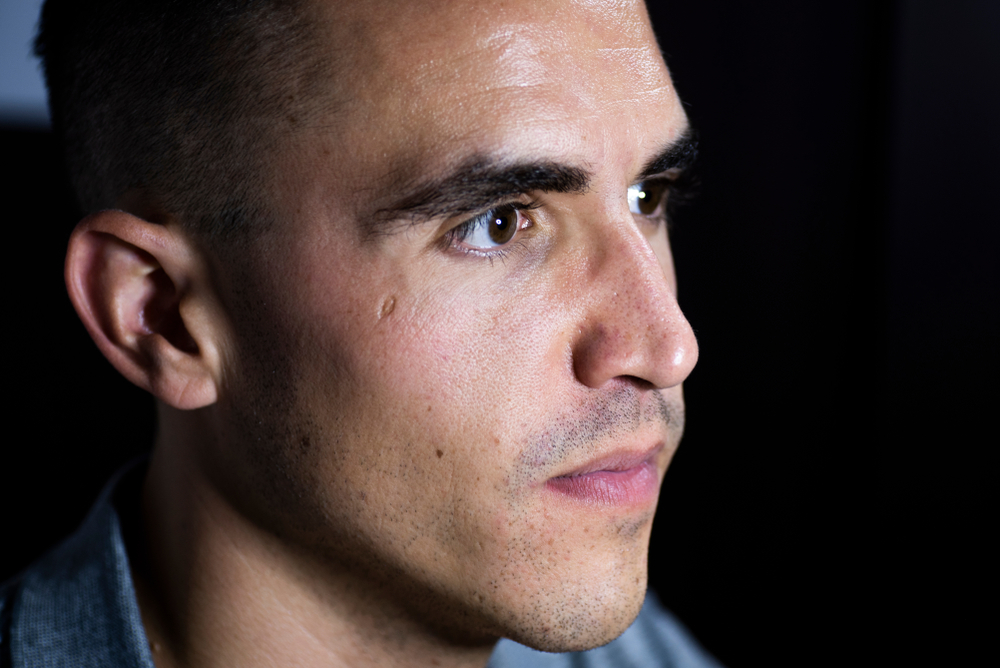We’ve all heard the saying, “What doesn’t kill you makes you stronger.” While that might sound cliché, there’s some truth to it, especially when it comes to overcoming a difficult childhood. Growing up in a challenging environment can shape us in profound ways, but it doesn’t have to define us. In fact, it can actually make us stronger, more resilient, and more compassionate people. Here are some signs that your tough past might have made you the amazing person you are today.
1. You have a heightened sense of empathy and compassion.

Growing up in a difficult environment often means witnessing or experiencing pain, hardship, and injustice. This can make you more sensitive to other people’s struggles and more likely to offer a helping hand. You understand what it’s like to feel hurt, misunderstood, or alone, and that empathy drives you to connect with people on a deeper level. You might volunteer your time to help those in need, offer a listening ear to a friend going through a tough time, or simply show kindness and compassion to everyone you meet.
2. You’re fiercely independent and resourceful.

If you had to navigate a challenging childhood, you probably learned to rely on yourself early on. You might have had to take care of yourself or even younger siblings, figure out how to manage your own emotions, or find ways to cope with difficult situations. This forced independence has made you resourceful, adaptable, and self-sufficient. You’re not afraid to take on challenges, solve problems, or go after what you want in life.
3. You’re a master at setting boundaries.

Growing up in a chaotic or unpredictable environment often means having to set boundaries to protect yourself. You might have learned to say no to unreasonable demands, distance yourself from toxic people, or simply create space for yourself when you needed it, per The Washington Post. This ability to set boundaries is a valuable skill that helps you maintain healthy relationships, protect your energy, and prioritize your own well-being.
4. You appreciate the little things in life.

When you’ve experienced hardship, you learn to appreciate the simple joys of life. A warm meal, a sunny day, a kind word from a friend – these things can mean so much more when you’ve had to struggle for them. You might find yourself savoring moments of joy, practicing gratitude, and focusing on the positive aspects of your life. This appreciation for the little things can bring a sense of peace and contentment even in the midst of challenges.
5. You’re not afraid to speak your truth.

Growing up in a difficult environment can make you more aware of injustice and inequality. You might have had to speak up for yourself or other people, challenge authority figures, or simply express your true feelings in the face of opposition. This has given you a strong sense of justice and a willingness to stand up for what you believe in, even when it’s not popular or easy. You’re not afraid to use your voice to advocate for yourself and everyone around you.
6. You’re resilient and adaptable.

Overcoming adversity requires resilience and adaptability. If you’ve faced challenges in your childhood, you’ve probably learned to bounce back from setbacks, cope with uncertainty, and adapt to changing circumstances. You don’t let obstacles define you; instead, you see them as opportunities for growth and learning. This resilience allows you to thrive in the face of adversity and overcome any challenges that come your way.
7. You have a deep appreciation for healthy relationships.

If your childhood relationships were strained or unhealthy, you’ve likely learned to value healthy relationships even more. You might be more selective about who you let into your life, prioritize communication and trust, and actively work to build positive connections with people. You understand the importance of mutual respect, support, and kindness in a relationship, and you’re willing to invest the time and effort to cultivate those qualities.
8. You’re determined to break the cycle.

If you grew up in a dysfunctional family or experienced trauma, you might be determined to create a different future for yourself and your loved ones. You might be committed to breaking the cycle of negativity, abuse, or addiction, and creating a healthier and happier environment for yourself and your children. This determination to create a better future is a powerful motivator that can drive you to achieve great things.
9. You have an incredible work ethic and determination.

Difficult childhoods often force us to grow up quickly and take on responsibilities that other kids don’t have to worry about. This can instill a strong work ethic and a determination to succeed. You might be used to putting in extra effort, going above and beyond, and never giving up on your goals. This drive and ambition can help you achieve great things in your personal and professional life.
10. You’re not easily rattled or discouraged.

Having faced numerous challenges and setbacks in your past, you’ve developed a thick skin and a resilient spirit. You don’t get easily discouraged by failures or obstacles. Instead, you see them as temporary setbacks and learning opportunities. You’re able to pick yourself up, dust yourself off, and keep moving forward with determination and grace. This mental toughness allows you to navigate life’s ups and downs with greater ease and confidence.
11. You’re grateful for the good in your life.

When you’ve experienced hardship, you learn to appreciate the good things in life even more. A loving partner, a supportive friend, a stable job, a roof over your head – these things become even more precious when you’ve had to fight for them or go without them. This gratitude can lead to a greater sense of contentment and joy, even in the face of challenges. You’re able to focus on the positive aspects of your life and cultivate a mindset of abundance, rather than scarcity.
12. You have a strong sense of self-preservation.

Growing up in a difficult environment can teach you the importance of self-preservation. You might have had to develop coping mechanisms to protect yourself from emotional or physical harm. This self-preservation instinct can serve you well in adulthood, helping you recognize and avoid toxic situations, prioritize your well-being, and advocate for your own needs. It’s a survival skill that allows you to navigate the world with greater awareness and protect yourself from further harm.
13. You have a unique perspective on life.

Your childhood experiences have shaped your worldview in ways that other people might not understand. You might see the world through a different lens, one that’s informed by your struggles, your triumphs, and your unique perspective. This can make you a more insightful, compassionate, and open-minded person, Psychology Today explains. You might be able to offer valuable insights to people, challenge conventional thinking, and inspire change through your unique perspective.
14. You’re a natural caregiver and nurturer.

If you had to take care of yourself or others at a young age, you might have developed a nurturing instinct. You might be drawn to helping people, offering emotional support, or simply providing a listening ear. This natural ability to care for people can make you a valuable friend, partner, or family member. You can create a safe and supportive space for people to heal and grow, just as you have done for yourself.
15. You’re a survivor, and that’s something to be proud of.

Overcoming a difficult childhood is no small feat. It takes courage, resilience, and a whole lot of strength. If you’ve made it through, you are a survivor. Don’t let anyone diminish your accomplishments or belittle your struggles. Celebrate your strength, your resilience, and your ability to overcome adversity. You are a testament to the human spirit’s capacity to heal, grow, and thrive, even in the face of great challenges.
Enjoy this piece? Give it a like and follow PsychLove on MSN for more!




